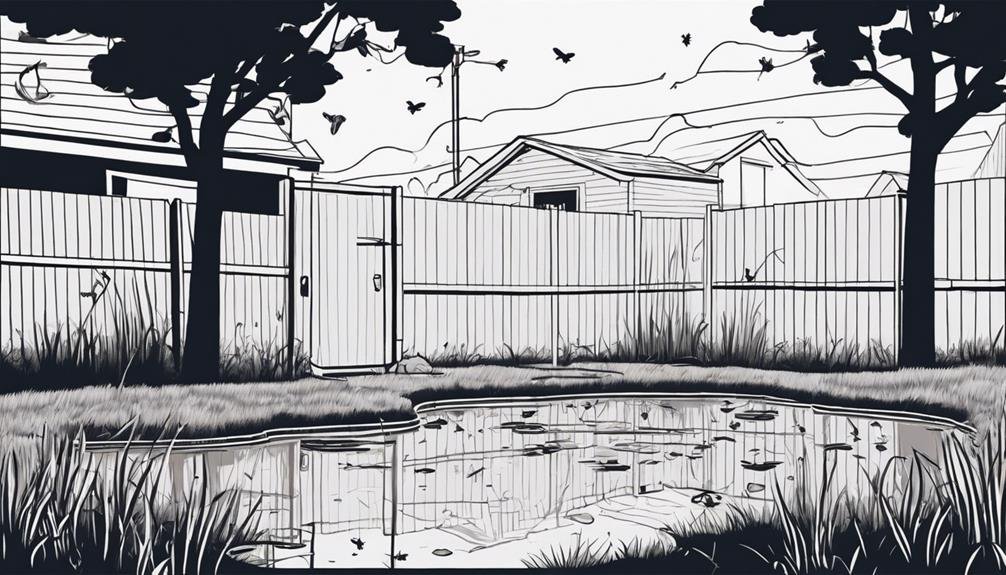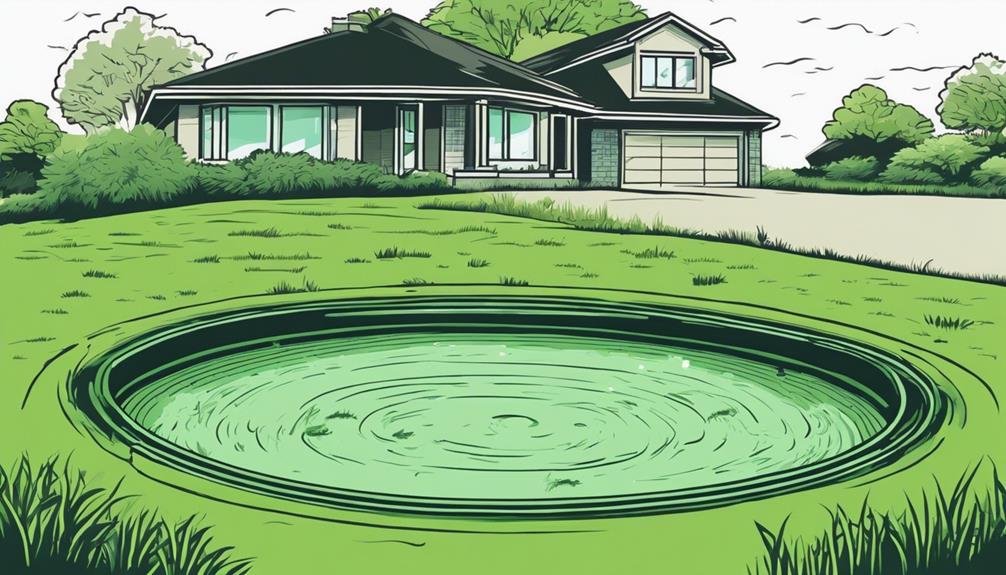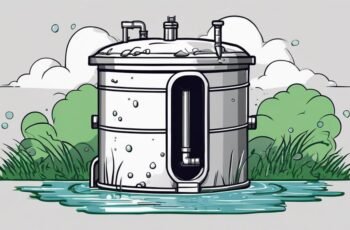So, you thought that septic tank maintenance was a breeze, huh? Think again. Your nostrils might be the first to alert you to a looming issue, but that's just the tip of the iceberg.
Imagine standing on your lush green lawn, the envy of the neighborhood, but little do you know it's a sign of trouble brewing beneath the surface.
And those gurgling sounds you hear in the dead of night? Well, let's just say your septic tank might have a message for you.
Key Takeaways
- Foul odors, slow drainage, lush grass, and gurgling sounds indicate early septic tank saturation.
- Odor control products help manage foul smells from septic tank saturation.
- Regular maintenance prevents septic tank saturation and associated odors.
- Address drainage issues promptly to avoid septic tank saturation and maintain system efficiency.
Foul Odors Around Property

If foul odors persist around your property, it could indicate potential septic tank saturation issues that require immediate attention. Addressing these early signs can prevent more extensive problems and health risks associated with septic tank failures. To mitigate odors effectively, consider using odor control products designed for septic systems. These products can help break down the organic matter causing the foul smells, restoring a more pleasant environment.
Ignoring foul odors may lead to harmful gases like hydrogen sulfide being released, posing health risks to you and your family. These gases can cause respiratory issues, headaches, dizziness, and in severe cases, even asphyxiation. Therefore, it's crucial to address any odor concerns promptly.
Regular maintenance, such as pumping your septic tank as recommended, can prevent saturation and the associated foul odors. Additionally, planting trees away from the septic system and being mindful of what's flushed down drains can also help in odor mitigation. By taking proactive steps, you can ensure a healthy and odor-free environment around your property.
Slow Drainage in Fixtures
Addressing slow drainage in fixtures can be a critical indicator of potential septic tank saturation issues that require prompt attention. When you notice slow drainage in sinks, showers, or toilets, it could be a sign that your septic system is struggling.
Here are some maintenance tips and common causes to help you address this issue effectively:
- Regular Pumping: Ensure your septic tank is pumped regularly to prevent buildup and clogs.
- Check for Blockages: Inspect fixtures for any blockages that may be causing slow drainage.
- Monitor Water Usage: Be mindful of excessive water usage as it can overload the septic system.
- Avoid Harsh Chemicals: Refrain from using harsh chemicals that can disrupt the natural balance in the septic tank.
- Inspect Drainfield: Regularly inspect the drainfield for any signs of saturation or backup.
Lush Grass Over Drainfield

To assess septic tank health, observe any excessive growth of lush grass over the drainfield, indicating potential saturation issues that require investigation. While lush grass may seem like a sign of a healthy lawn, in the context of a drainfield, it can be a red flag. The presence of an abundance of lush grass above the drainfield suggests that the soil beneath may be experiencing issues such as soil compaction or root intrusion.
Soil compaction occurs when the soil becomes tightly packed, limiting the absorption of effluent from the septic system. This can lead to the pooling of wastewater on the surface, causing the grass above to thrive due to the increased moisture content. Root intrusion, on the other hand, happens when plant roots penetrate the pipes or the soil in the drainfield, potentially leading to blockages and hindering proper drainage.
If you notice unusually vibrant grass above your drainfield, it's crucial to address the underlying causes promptly to prevent further septic tank saturation and potential system failure.
Gurgling Sounds From Plumbing
Inspect your plumbing system for any gurgling sounds, as they could indicate potential issues with your septic tank. Gurgling noises are often a sign of air trapped in the pipes, which can be caused by water backup or blockages within the plumbing system. To address this issue effectively, consider the following:
- Check for Clogs: Perform a thorough inspection of your drains and pipes to identify any blockages that may be causing the gurgling sounds.
- Schedule a Septic Tank Inspection: Contact a professional to assess the condition of your septic tank and determine if it's the source of the problem.
- Regular Plumbing Maintenance: Implement a routine plumbing maintenance schedule to prevent future issues and keep your system functioning properly.
- Address Drainage Problems: Ensure proper drainage around your property to prevent water from seeping into the septic tank and causing backups.
- Consider Installing a Septic Tank Alarm: Invest in a septic tank alarm that can alert you to potential problems before they escalate.
Conclusion
As you monitor your septic tank for early saturation indicators, remember to act swiftly upon any signs of trouble. Ignoring these warnings could lead to costly repairs and potential health hazards. Stay vigilant and proactive in maintaining your septic system to avoid any major issues down the road.
Keep an eye out for the warning signs mentioned earlier, and don't wait until it's too late. Your septic system's health depends on your quick response.

